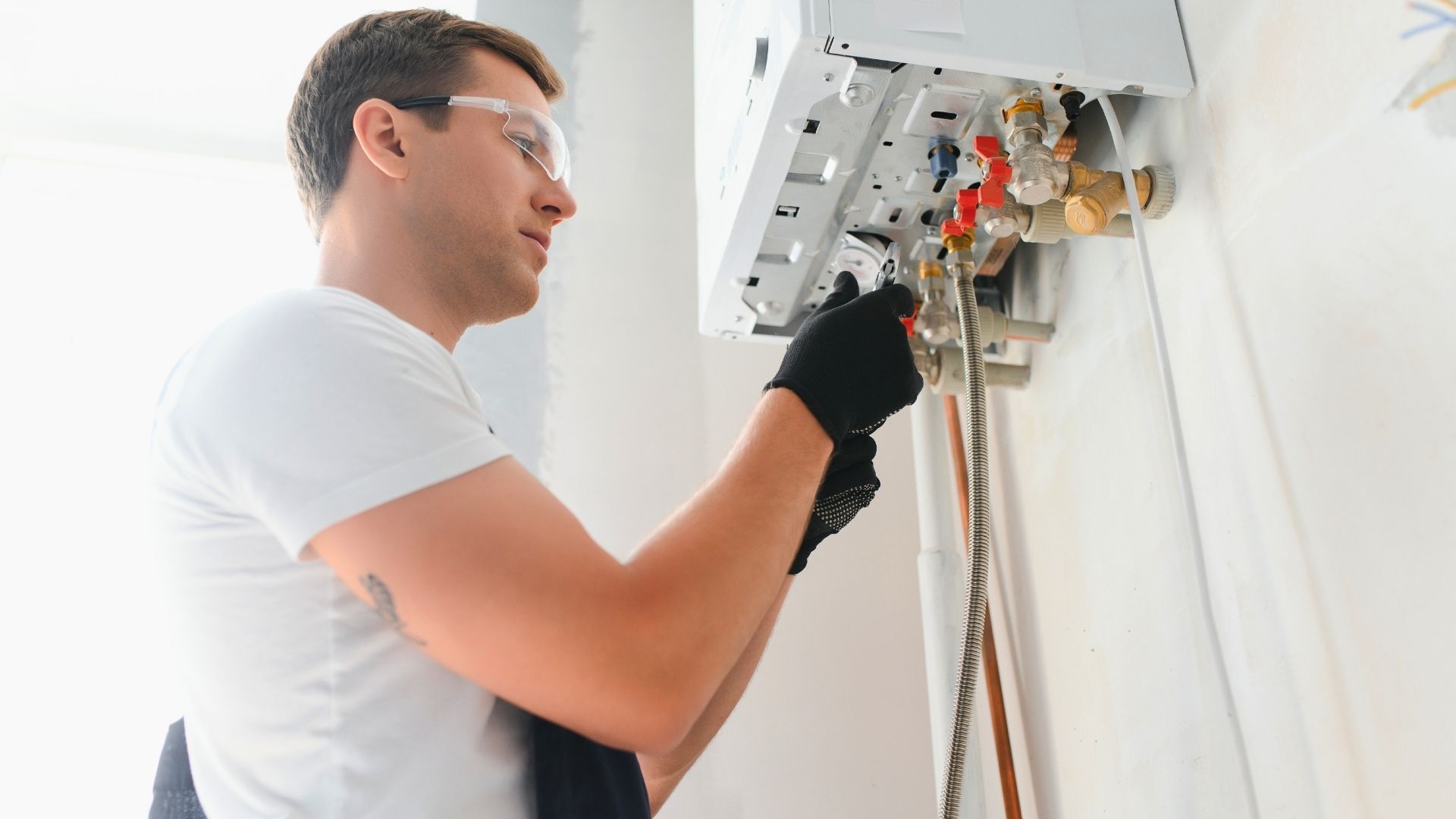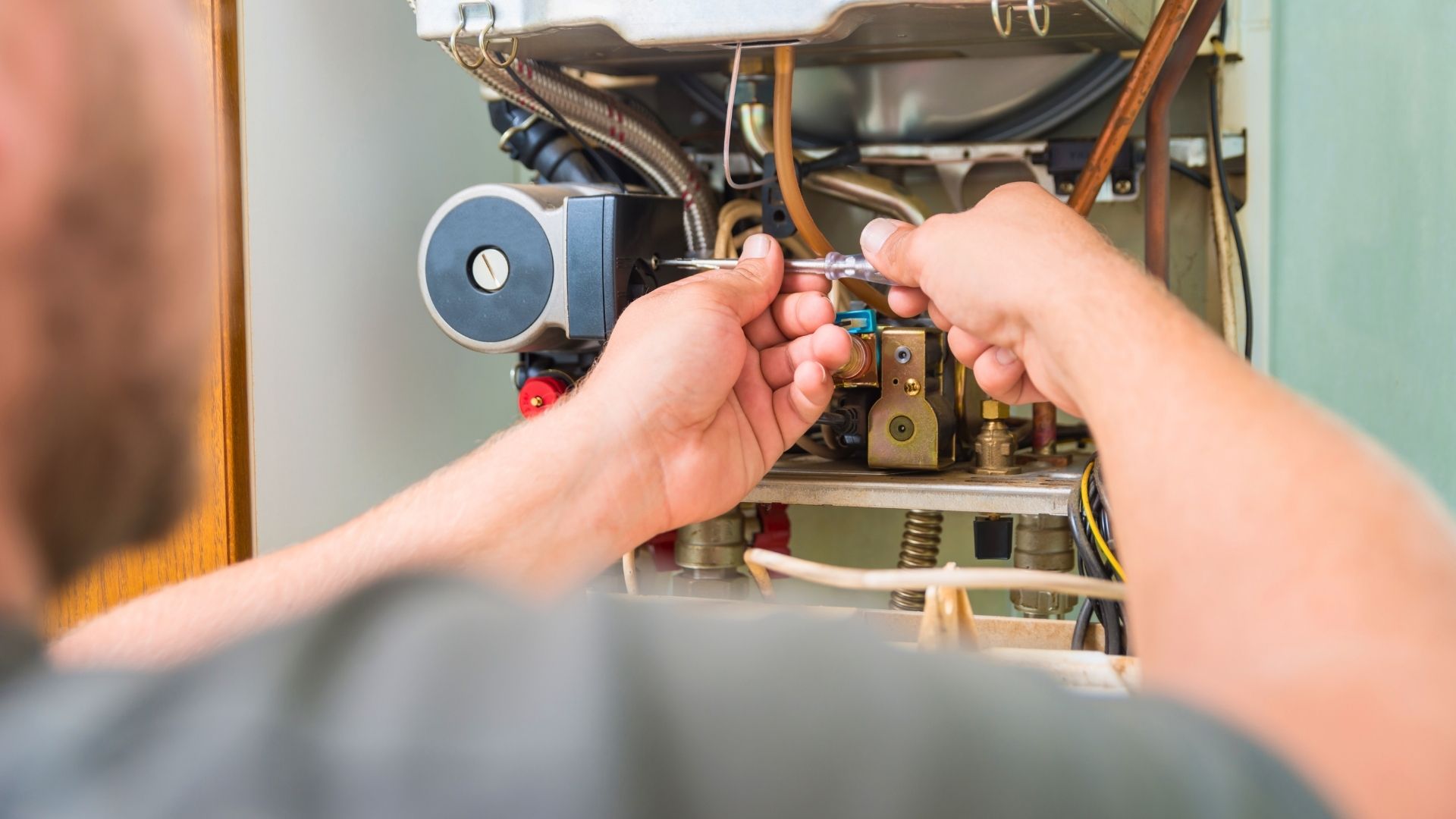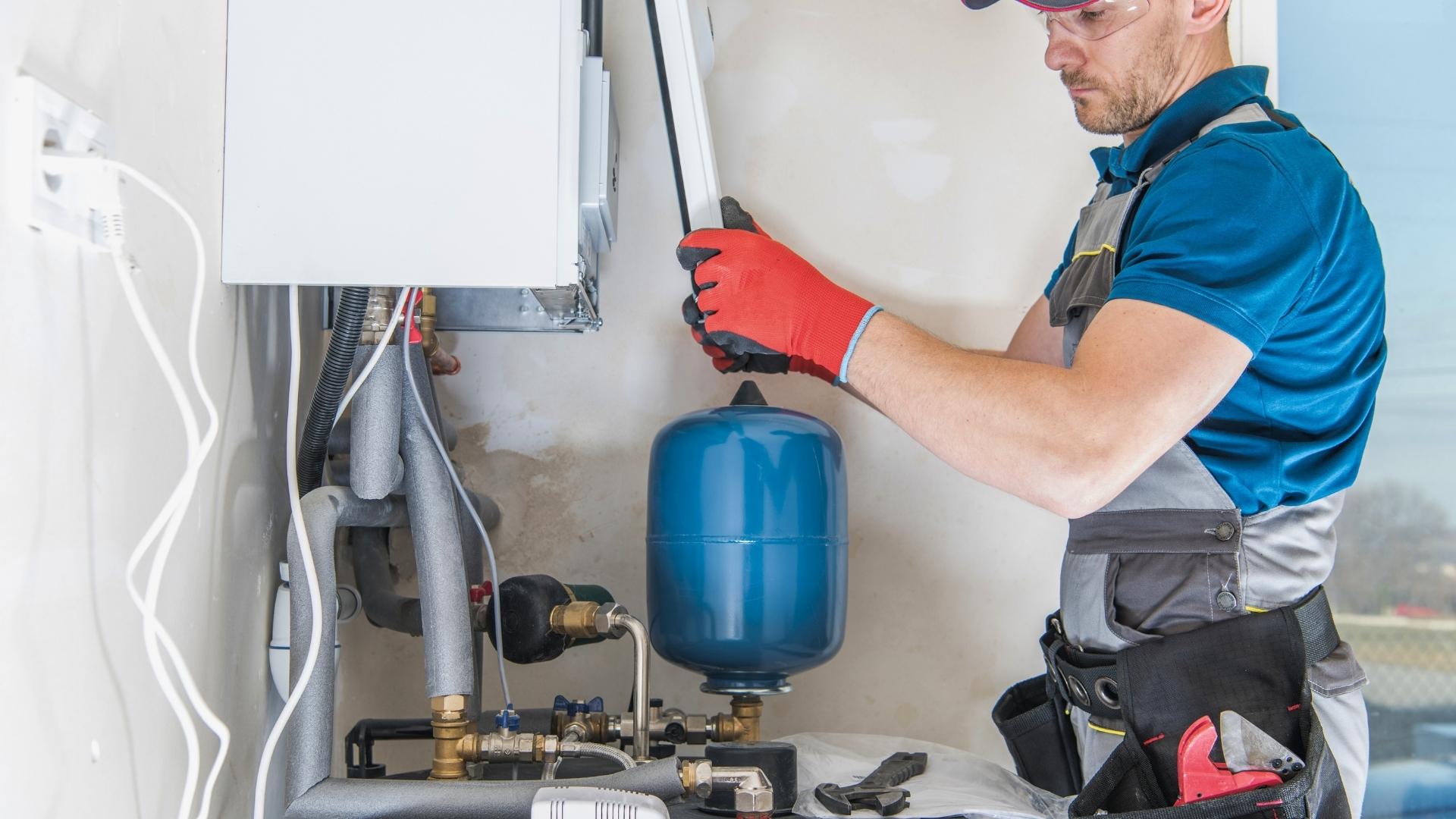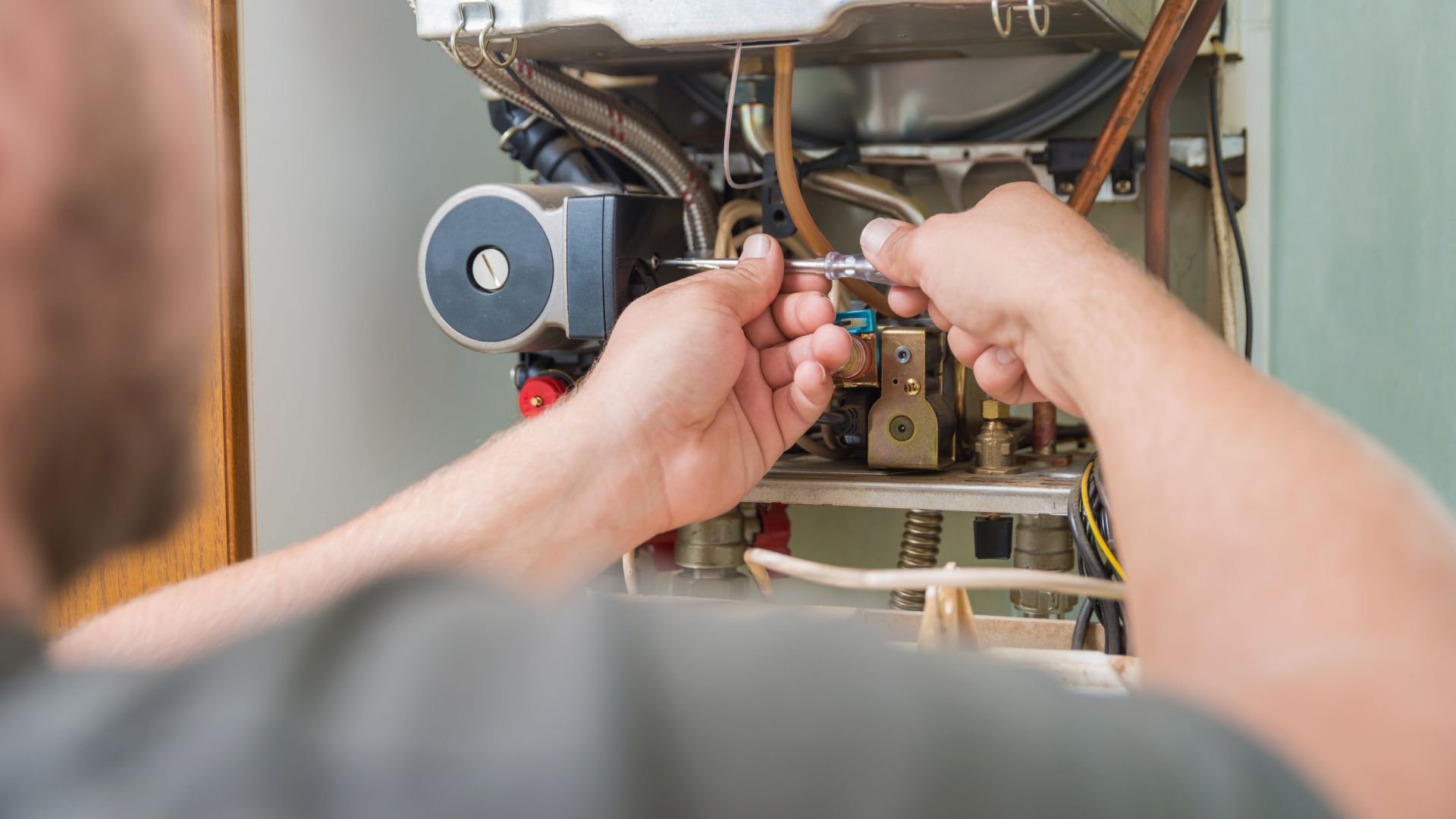Marshall, MI's HVAC Specialist
We are a full service HVAC company and we cover a large service area around our physical location and serve all of Marshall, Michigan and many surrounding areas.

Marshall, Michigan HVAC Services
At our core, we specialize in HVAC solutions, offering a comprehensive array of services including system installations, maintenance, and repairs. Whether you need repairs, routine upkeep, or a new water heater, furnace, or air conditioner, our skilled HVAC experts are dedicated to promptly diagnosing and resolving any heating or cooling issues you encounter. Contact us today to schedule an appointment or ask our specialists any questions you may have.
Heating
We are a full service heating and cooling company that specializes in furnace and home heating solutions.
Air Conditioning
We provide complete A/C repair, maintenance, & installation services to keep you cool all summer long.
Air Quality
We offer a wide range of indoor air quality solutions to keep your home comfortable and your family safe year round.
Comfort Club
Keep your homes HVAC system properly maintained and running strong year round by joining our Comfort Club today!
Aspen One Hour Heating & Air

Founded in 1981, Aspen One Hour Heating & Air Conditioning is committed to providing exceptional heating and cooling solutions. Our skilled technicians are dedicated to delivering outstanding service with unparalleled guarantees, consistently surpassing expectations to ensure every customer has a superior experience.
We are focused on making sure every repair or replacement is handled with the utmost care. Whether you need a new furnace, AC system, or generator, our experts are here to manage it all seamlessly. At Aspen One Hour Heating & Air Conditioning, we strive to make your experience smooth and informative, and we stand firmly behind our work. Our team goes the extra mile for each customer, and we look forward to the opportunity to serve you!

HVAC Information Center
Tips From The Marshall, Michigan HVAC Experts
Dedicated to your comfort, the skilled technicians at Aspen One Hour leverage their HVAC expertise to provide actionable tips and insights for peak system performance
Why Does My A/C Unit Make a Loud Buzzing Noise?
A loud buzzing noise coming from your A/C unit can be concerning, as it may indicate an issue that needs attention. There are several potential causes for this type of noise, and understanding them can help you identify the source and determine whether it requires professional repair. Here are some of the most common reasons your A/C unit may be making a loud buzzing noise:
1. Loose or Broken Parts
One of the most common causes of a buzzing noise in an A/C unit is loose components. The various parts of the system, such as the fan blades, screws, and panels, can become loose over time due to vibration or wear and tear. When these parts are not properly secured, they may vibrate or make buzzing sounds as the air conditioner operates. This can often be remedied by tightening or replacing the affected parts.
In some cases, the fan blades or blower fan may also become misaligned or damaged. If these parts aren’t spinning smoothly, they can create a buzzing or rattling noise. A technician can inspect the fan and align or replace it if needed.
2. Debris in the Unit
Another common reason for buzzing noises is debris trapped in the A/C unit, particularly around the fan or coils. Small objects, such as leaves, sticks, or dirt, can get caught in the fan blades or other moving parts. When the fan is in operation, the debris can cause an obstruction, which results in a buzzing or grinding noise. This problem can typically be solved by cleaning the unit and removing any foreign objects from the fan or vents.
3. Electrical Issues
A buzzing sound can also indicate electrical problems with the A/C unit, such as issues with the compressor or capacitor. The compressor, which is responsible for circulating refrigerant through the system, may produce a buzzing noise if it’s malfunctioning or under stress. Similarly, a faulty capacitor can cause electrical components to buzz or hum if they are not operating properly.
Capacitors help start the motor and keep it running smoothly. If the capacitor is defective or worn out, it can result in buzzing noises. Replacing a faulty capacitor is often necessary to restore quiet operation.
4. Refrigerant Issues
Low refrigerant levels or refrigerant leaks can also cause a buzzing noise in your A/C unit. When there is not enough refrigerant circulating through the system, the compressor may struggle to perform its job, which can lead to unusual noises, including buzzing. If you suspect refrigerant issues, it’s important to have a professional technician check the system, as handling refrigerant requires specific expertise and equipment.
5. Dirty Condenser Coils
Over time, dirt and grime can build up on the condenser coils, located on the outside of the unit. These coils are responsible for releasing heat from the refrigerant, and when they become dirty, the system has to work harder to expel heat. This increased strain can cause the system to make unusual noises, including buzzing or humming sounds. Cleaning the condenser coils can help alleviate the noise and improve system efficiency.
6. Faulty Fan Motor
The fan motor in your A/C unit is another potential culprit. If the fan motor is damaged, worn, or failing, it can produce a loud buzzing noise as it struggles to turn the fan blades. In some cases, the motor may be clogged with dust or debris, causing friction that leads to buzzing. A technician can inspect the motor and either clean it or replace it if necessary.
7. Issues with the Ductwork
Buzzing noises can also emanate from the ductwork rather than the A/C unit itself. If the ducts are loose, damaged, or poorly insulated, they can amplify sounds coming from the system. Buzzing or rattling noises may occur if air is passing through the ducts in an uneven or obstructed manner. In some cases, the noise may be coming from the air handler or other components that are connected to the ductwork.
8. High Internal Pressure
High internal pressure within the system, particularly in the compressor, can also cause buzzing noises. This can happen if the A/C unit is overcharged with refrigerant or if there’s a blockage in the refrigerant lines. High pressure forces the compressor to work harder, leading to abnormal sounds. If you suspect pressure issues, it’s essential to have a professional inspect and repair the system, as overcharged refrigerant or blockages can cause significant damage if not addressed.
What to Do if Your A/C is Making a Buzzing Noise
If your A/C unit is making a loud buzzing noise, it’s essential to act quickly to prevent further damage or a system failure. Here’s what you can do:
Turn off the unit: If the noise is persistent and unusually loud, it’s a good idea to turn off the air conditioner to prevent any further damage. Continuing to operate the unit while it’s making strange noises can lead to more severe issues.
Check for visible debris: Inspect the unit for any visible debris that may have gotten lodged in the fan or other moving parts. Cleaning out leaves, dirt, or other obstructions can help resolve the issue.
Inspect the unit’s components: If you’re comfortable doing so, check the fan blades, screws, and panels to ensure they’re properly tightened. You can also check for any obvious signs of damage.
Call a professional HVAC technician: If you can’t locate the source of the buzzing noise or suspect an electrical or refrigerant issue, it’s best to contact a licensed HVAC professional. They can properly diagnose the problem and provide the necessary repairs, ensuring your system runs smoothly.
Conclusion
A loud buzzing noise from your A/C unit is often a sign of a mechanical issue, electrical problem, or debris obstruction. While some issues, like cleaning out debris, can be addressed by the homeowner, others—such as problems with the compressor, capacitor, or refrigerant—require the expertise of a professional HVAC technician. Ignoring buzzing sounds can lead to more serious damage, so it’s important to address the issue promptly to keep your A/C unit running efficiently and quietly.
How Can I Keep My Outdoor Condenser Unit Clean?
Keeping your outdoor condenser unit clean is crucial for ensuring that your air conditioning system runs efficiently and lasts longer. The condenser unit plays an important role in the cooling process by expelling heat from the refrigerant. If it becomes dirty or obstructed, it can cause the system to work harder, leading to increased energy consumption, reduced cooling performance, and potential damage. Here are some steps to help you keep your outdoor condenser unit clean and operating optimally:
1. Clear the Area Around the Unit
One of the simplest ways to keep your condenser unit clean is by regularly clearing the area around it. Over time, dirt, leaves, grass clippings, and other debris can accumulate around the unit, blocking airflow and affecting its efficiency. Make sure there’s at least 2 to 3 feet of clearance on all sides of the condenser unit to allow for proper ventilation. Trim any bushes, plants, or vines that may be growing too close to the unit, as these can obstruct airflow and reduce cooling efficiency.
2. Remove Debris from the Fins
The fins on the condenser coil can easily become clogged with dirt, leaves, or other debris. When the fins are dirty, airflow is restricted, making it harder for the unit to release heat. To clean the fins, you can use a soft brush or a vacuum with a brush attachment to gently remove dirt and debris. Be careful not to bend or damage the fins, as they are delicate. If the fins are significantly clogged, you can use a fin comb (available at most hardware stores) to straighten any bent fins and improve airflow.
3. Clean the Condenser Coils
The condenser coils are responsible for releasing the heat absorbed by the refrigerant. Over time, these coils can collect dust, dirt, and other particles, which can reduce the unit’s efficiency. Cleaning the coils is a crucial step in keeping your condenser unit in top shape. Here’s how you can do it:
Turn off the power to the A/C unit before performing any cleaning.
Use a coil cleaner (available at home improvement stores) specifically designed for HVAC systems. Spray the cleaner onto the coils, following the manufacturer’s instructions.
After applying the cleaner, use a garden hose (with low pressure) to rinse off the dirt and cleaning solution. Avoid using high-pressure water, as it can damage the coils.
If the coils are heavily soiled, consider hiring a professional to clean them thoroughly, as they may require more specialized cleaning techniques.
4. Check and Clean the Drain Line
The condensate drain line removes moisture collected during the cooling process. If the line becomes clogged with algae, dirt, or other debris, it can cause water to back up, leading to possible water damage and decreased efficiency. Check the drain line periodically to ensure it’s clear.
To clean the drain line:
Locate the drain line, which is typically a PVC pipe connected to the unit.
Use a wet/dry vacuum to suck out any debris from the drain line. You can also pour a mixture of water and bleach (or vinegar) down the line to help prevent algae and mold buildup.
Alternatively, you can flush the line with water using a garden hose.
5. Clean the Fan Blades
The fan blades in the condenser unit help to expel heat from the refrigerant. Dust and dirt can accumulate on the blades, which can reduce their efficiency and cause strain on the fan motor. To clean the fan blades:
Turn off the power to the unit.
Use a soft cloth or brush to gently wipe away any dirt or debris from the blades.
If the blades are very dirty or if there’s visible mold, use a mild cleaning solution and a soft sponge to clean them thoroughly.
Make sure the blades are free of obstructions and rotate smoothly before turning the unit back on.
6. Check for Foul Odors
Foul odors coming from your outdoor condenser unit can sometimes be caused by mold or mildew growth. This can happen if the unit’s drainage system is not properly functioning or if there’s too much moisture accumulating inside the unit. If you notice a musty or sour smell, it’s important to clean the unit thoroughly and inspect the drainage system.
Inspect and clean the evaporator coil inside the unit to remove any mold or mildew.
Check the drain pan to ensure it is draining properly and not accumulating water.
7. Hire a Professional for Annual Maintenance
While regular cleaning is essential for keeping your outdoor condenser unit in good condition, it’s also a good idea to have a professional HVAC technician perform an annual inspection and maintenance. During a professional maintenance visit, the technician will thoroughly clean the condenser unit, check refrigerant levels, inspect electrical components, and make sure the system is running efficiently.
Professional maintenance can help identify potential problems early, ensuring that your A/C unit runs smoothly and doesn’t experience costly breakdowns. Many HVAC companies offer annual maintenance plans that can help you stay on top of routine care.
8. Avoid Using Harsh Chemicals
When cleaning your condenser unit, it’s important to avoid using harsh chemicals or abrasive cleaners, as they can damage the sensitive components of the unit. Stick to products designed specifically for HVAC cleaning or use gentle solutions like mild soap and water. Always follow the manufacturer’s guidelines for cleaning to avoid voiding any warranties or causing damage.
9. Preventative Measures
To help keep your condenser unit cleaner for longer, consider taking the following preventative measures:
Install a condenser cover: During the off-season (winter), a cover can help protect your unit from leaves, debris, and snow. Just make sure to remove the cover during the cooling season to allow for proper airflow.
Install a perimeter barrier: A simple mesh or fencing barrier around the unit can help prevent larger debris from getting into the system while still allowing for adequate airflow.
Conclusion
Keeping your outdoor condenser unit clean is essential for maintaining the efficiency and longevity of your A/C system. Regularly removing debris, cleaning the coils, and ensuring proper airflow will help your system run more efficiently, reducing energy costs and preventing breakdowns.
If you’re unsure about how to clean or maintain your unit, don’t hesitate to contact a professional HVAC technician to ensure the job is done correctly. Regular cleaning and maintenance will ensure that your A/C unit stays in great shape, providing you with cool, comfortable air throughout the warmer months.

Complete Home Maintenance Plans To Keep Your Equipment Running Strong
Comfort Club

Join Our Comfort Club
What's Included:
- Whole Home Maintenance Inspection
- Whole Home Maintenance Services
- Plumbing System Maintenance
- Water Heater Flush
- Heating & Cooling Maintenance
- Furnace & A/C Tune Up
- Electrical System Safety Inspection
- Carbon Monoxide & Smoke Detector Inspection
Why It Pays To Be A Member:
- 15% Discount on All Services
- Priority/Front Of The Line Services
- No Standard Diagnostic Fees
- Extend the Life of Your Equipment
- Keep Manufacturer’s Warranty Valid
- Keep Extended Warranties and Guarantees in Effect
Plans Starting at $20/month
Current Members
Current members of our Comfort Club can schedule services when it is convenient below. If you have any questions about your current plan, services that are included, when your next service is due, etc. feel free to call our main office line to speak with a specialist who can assist you.
Heating & Cooling F.A.Q.
Frequently Asked Questions
Do You Install Smart Thermostats in Marshall, Michigan?
Yes, we install a variety of smart thermostats for homeowners in Marshall, Michigan. These devices make it easy to control your home’s heating and cooling remotely using your smartphone or tablet. Smart thermostats can help reduce your energy bills by learning your habits and adjusting the temperature automatically for optimal efficiency. They’re especially useful during Michigan’s changing seasons, helping you stay comfortable without constantly adjusting your settings.
We’ll help you choose a model that works well with your existing HVAC system and install it correctly for maximum performance. Many smart thermostats also provide energy usage reports, giving you greater insight into your home’s efficiency. If you’re interested in upgrading, we’re happy to provide recommendations and walk you through the benefits of making the switch.
Why should I choose your company for HVAC services in Marshall?
Choosing the right HVAC company is important, and we’re proud to be a trusted provider for homeowners and businesses throughout Marshall. With years of experience in the industry, we understand the unique heating and cooling needs that come with Michigan’s changing seasons.
Our licensed technicians are highly trained, friendly, and committed to getting the job done right the first time. We use high-quality equipment and offer a full range of services—from installations and repairs to seasonal maintenance and indoor air quality solutions.
Customer satisfaction is our top priority, and we take the time to listen, explain your options, and provide honest recommendations.
Whether you need emergency service in the middle of winter or a new AC before summer hits, you can count on us to respond quickly and professionally.
We also offer competitive pricing and financing options to make comfort affordable. When you choose us, you’re choosing dependable service and long-term peace of mind.
Can You Help Improve Indoor Air Quality in My Marshall Home?
Yes, we offer several solutions to help improve indoor air quality for homeowners in Marshall. Michigan homes often deal with seasonal allergens, humidity issues, and indoor pollutants, especially during the winter months when houses are sealed tightly.
We install whole-home air purifiers, HEPA filters, humidifiers, and dehumidifiers that work with your HVAC system to create a healthier environment. These systems can help reduce dust, mold spores, pet dander, and other airborne irritants that affect your comfort and well-being.
Proper humidity control also helps prevent dry skin, respiratory issues, and even damage to your home’s woodwork or furniture. We’ll assess your current air quality and recommend the best options based on your home and lifestyle.
Our goal is to help you breathe easier and feel more comfortable year-round. Whether you have allergies, asthma, or just want cleaner air, we have a solution that fits your needs.
What HVAC Services Do You Offer in Marshall, Michigan?
We provide a full range of residential HVAC services to meet the needs of Marshall, Michigan homeowners. Our services include installation, repair, and maintenance of furnaces, air conditioners, heat pumps, and ductless mini-splits.
We also offer indoor air quality solutions such as air purifiers, humidifiers, dehumidifiers, and ventilation upgrades. Whether you need a brand-new system or just a seasonal tune-up, our experienced technicians are here to help.
We work with top brands and energy-efficient equipment to ensure long-lasting comfort and reliability. In addition, we offer 24/7 emergency HVAC repairs for those unexpected breakdowns during extreme weather.
Our goal is to keep your home or business comfortable all year long with expert service and dependable solutions.
Our Service Area
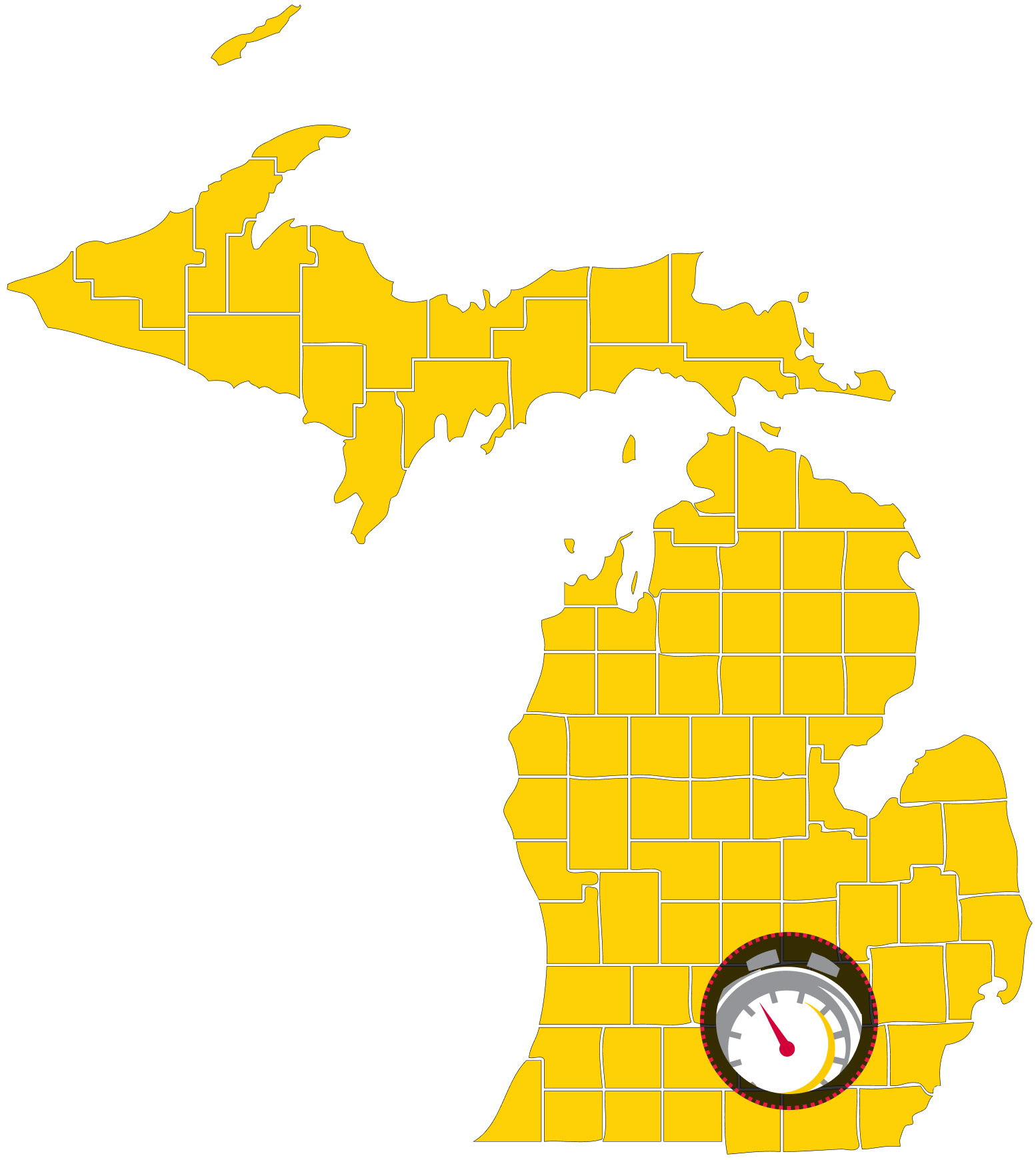
We proudly serve Marshall, Michigan and a large geographic area around our main location. We serve all of Jackson County and large portions of surround counties including: Ingham County, Eaton County, Calhoun County, Branch County, Hillsdale County, Lenawee County, Washtenaw County, & Livingston County.

Why Choose Us?
At Aspen One Hour Heating & Air Conditioning, we are dedicated to being the trusted heating, cooling, air quality and generator experts, and have been for over 40 years. We serve all of Jackson County and many surrounding areas and our team works hard to ensure our customers get exactly what they need. From using top-of-the-line equipment to making sure our team is well-trained, we strive to provide 5-star service each and every time. Call us today to schedule your service to find out why we have earned a reputation of integrity and quality work.

- In Business Since 1981
- Family Owned & Operated
- Free Estimates on Installation
- Low Interest Financing
- Emergency Service
- Available 24/7
- Licensed and Insured
- Performance & Satisfaction Guarantees
Financing
We offer a wide range of financing options for every budget and situation and can finance both large and small HVAC projects. For more information, call us today to speak with a member of our team who can answer any questions you may have. For immediate approval, click on the link below to get approved in just a few minutes.
- Low Interest Financing
- 0% Interest For Up To 12 Months
- Get Approved In Minutes

Our Blog
Insights From The Heating & Cooling Experts
Below you will find some excellent inside information from our team of expert technicians, that will provide great resources for all home owners. Make sure to check out our blog for all of our home owner resources and sign up for our newsletter below to receive our monthly newsletter that is packed with resources, coupons, etc.
Aspen One Hour Heating & Air Conditioning

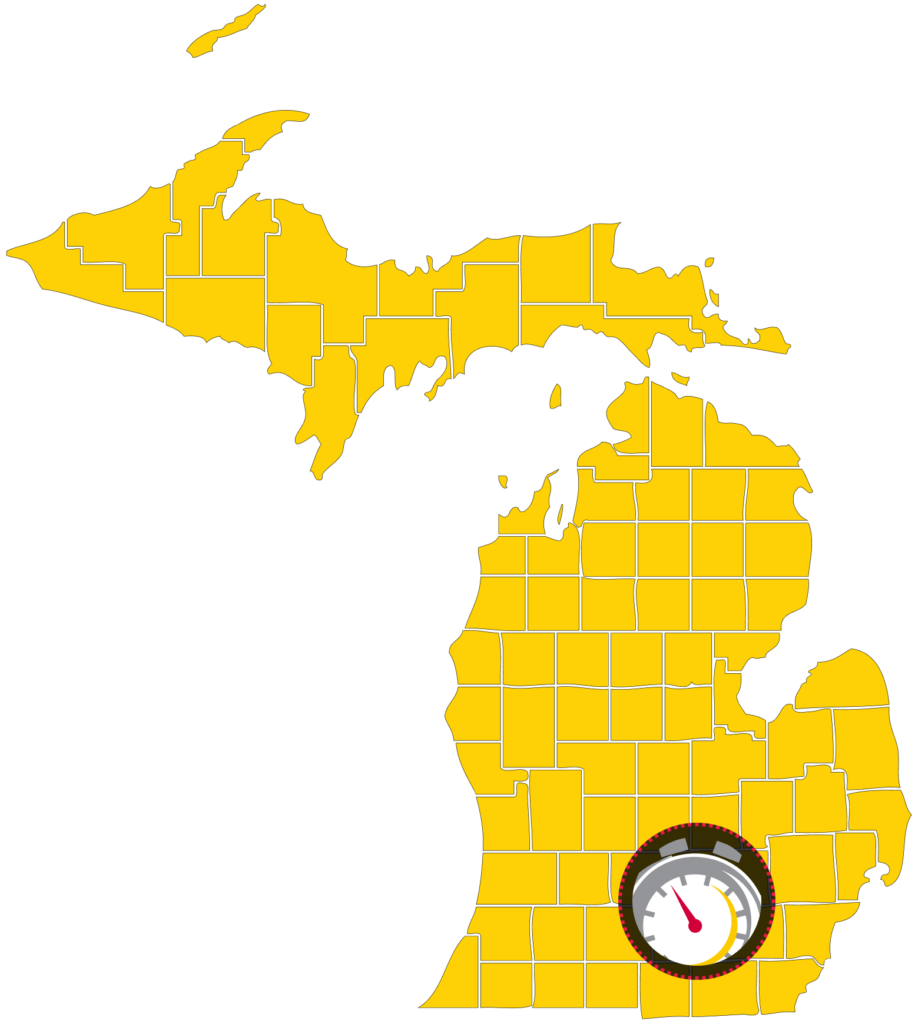
- 4131 W. Michigan Ave. Jackson, MI 49202
- Phone: (517) 879-2049
- Fax: (517) 750-0900
- Available 24/7
Contact Us
Reach out using the form below and a member of our team will follow up within one business day. For immediate support, contact us at (517) 879-2049. We look forward to speaking with you soon!
"*" indicates required fields


